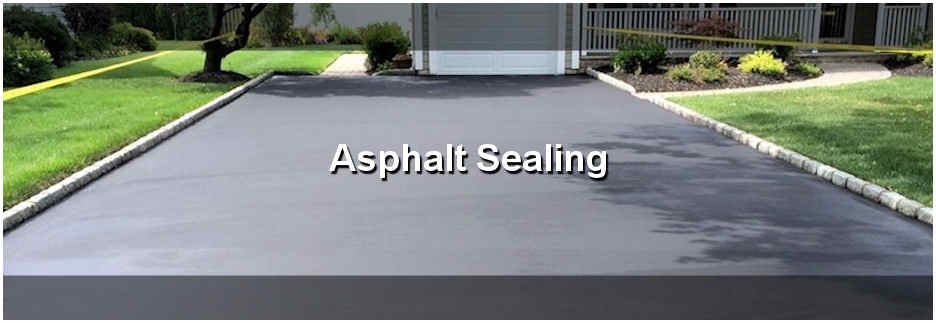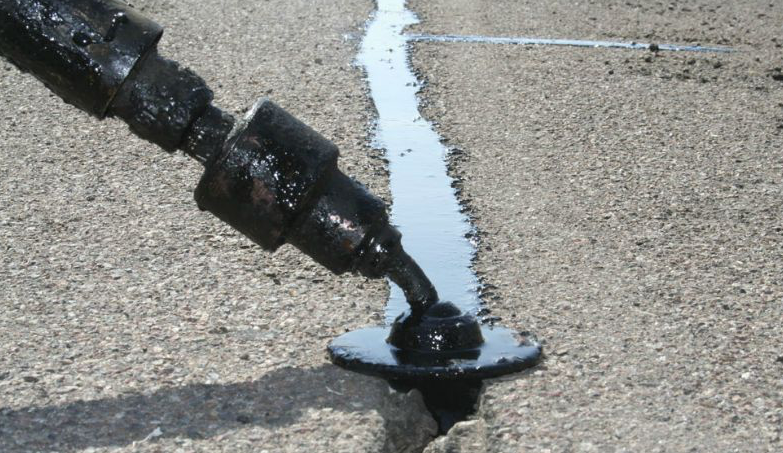Unleash the Prospective: Regrading and Asphalt Sealing for Business Rooms
Unleash the Prospective: Regrading and Asphalt Sealing for Business Rooms
Blog Article
Hot Mix Asphalt: A Lasting Solution for Sidewalk
Warm Mix Asphalt (HMA) has actually become a leading sustainable selection for pavement options, providing a myriad of environmental benefits and innovative technologies. Its capacity to decrease and recycle materials energy usage presents a compelling situation for its adoption in roadway building projects. The long-term efficiency and toughness of HMA make it a favored alternative for infrastructure advancement. As the need for environmentally friendly building and construction techniques expands, exploring the nuances of HMA's sustainability can supply useful understandings right into the future of sidewalk services.
Environmental Advantages of Hot Mix Asphalt

Additionally, Hot Mix Asphalt assists to reduce metropolitan warm island impacts. Its dark color takes in sunlight, reducing the quantity of warm mirrored back into the ambience compared to lighter-colored sidewalks. This can lower ambient temperature levels in urban locations, decreasing the need for cooling and eventually lowering energy intake.
On top of that, Warm Mix Asphalt adds to improved stormwater management. Its porous nature enables water to charge and penetrate the pavement groundwater materials, minimizing drainage and the threat of flooding. These environmental benefits make Warm Mix Asphalt a lasting selection for leading highways and roads.
Energy Efficiency in HMA Production
Is energy performance an essential element in the production of Hot Mix Asphalt (HMA)? Absolutely. Energy plays a substantial function in the manufacturing of HMA, impacting both expense and environmental sustainability. One vital aspect of power efficiency in HMA manufacturing is using warm mix asphalt (WMA) technologies (regrading). WMA enables the blending and positioning of asphalt at lower temperature levels compared to traditional hot mix asphalt, resulting in lowered power intake during manufacturing. This process not just reduces fuel usage yet additionally reduces greenhouse gas discharges, making it a much more eco-friendly option.
Furthermore, developments in plant innovations have led to even more energy-efficient HMA production procedures. Modern plants are developed with functions like recycled asphalt sidewalk (RAP) processing capacities, reliable burner systems, and improved insulation, all contributing to energy cost savings. By optimizing energy usage in HMA manufacturing, the sector can minimize its carbon footprint while preserving top quality sidewalk products. Energy performance is, as a result, a crucial factor to consider in making sure the sustainability of Warm Mix Asphalt production.
Recyclability of Warm Mix Asphalt
The recyclability of Hot Mix Asphalt (HMA) is an essential aspect of its sustainability and long-lasting environmental effect. HMA is just one of the most recycled products in the United States, with over 100 million loads of recovered asphalt sidewalk (RAP) being recycled each year in new sidewalk building. Reusing HMA uses numerous ecological advantages, such as minimizing the demand for virgin products, decreasing power intake throughout production, and reducing the amount of waste sent out to land fills.
The procedure of reusing HMA involves crushing the existing sidewalk, crushing it into smaller sized pieces, and mixing it with brand-new aggregate and asphalt binder to create a recycled mix. Generally, the recyclability of HMA plays a substantial function in promoting lasting practices within the pavement market.

Long-Term Efficiency of HMA
Asphalt sidewalks show toughness and resilience over an extended period, showing the lasting efficiency blog here of Hot Mix Asphalt (HMA) The durability of HMA can be credited to its capability to withstand heavy traffic tons, rough climate condition, and the effects of aging. Studies have revealed that properly designed and properly constructed HMA pavements can last for two decades or more with routine maintenance. The secret to taking full advantage of the long-term performance of HMA depends on utilizing top quality materials, adhering to finest techniques in construction, and applying effective internet upkeep methods. Correct drain, routine assessments, and prompt repair work are vital for maintaining the architectural honesty of HMA sidewalks in time. Additionally, advancements in HMA innovation, such as making use of polymer-modified binders and warm mix asphalt, have additionally improved the sturdiness and long life of HMA pavements. By prioritizing quality construction and maintenance methods, HMA proceeds to show itself as a economical and sustainable solution for long-lasting pavement framework.

HMA: Toughness and Sustainability
Demonstrating both durability and sustainability, Hot Mix Asphalt (HMA) has come to be a keystone in the building and construction of durable pavement facilities - regrading. HMA's resilience comes from its ability to stand up to heavy lots, extreme weather, and high traffic volumes, making it a trustworthy option for highways, freeways, and flight terminal paths. The composition of HMA, which commonly includes aggregates, binder, and filler, plays an essential function in enhancing its long life and resistance to put on and tear
Furthermore, HMA's sustainability depends on its recyclability and energy-efficient manufacturing process. The ability to recycle redeemed asphalt pavement (RAP) in new HMA combinations decreases the demand for virgin materials and reduces the ecological influence of pavement building and upkeep. Furthermore, the energy efficiency of generating HMA depends on its lower mixing why not try here temperature levels compared to other sidewalk products, causing minimized power consumption and greenhouse gas discharges.
Verdict
Finally, hot mix asphalt (HMA) supplies a lasting remedy for sidewalk with its eco-friendly qualities. HMA's recyclability, energy performance in manufacturing, and long-lasting resilience make it an eco-friendly choice for roadway building and construction. By conserving natural sources, decreasing waste, and decreasing greenhouse gas emissions, HMA plays an important role in promoting sustainability in facilities advancement. Its capacity to alleviate urban heat island effects additionally underscores its significance in producing resilient and ecologically mindful sidewalk systems.
HMA is one of the most recycled materials in the United States, with over 100 million lots of reclaimed asphalt sidewalk (RAP) being reused annually in brand-new sidewalk building and construction.The process of reusing HMA includes milling the existing sidewalk, crushing it right into smaller items, and mixing it with brand-new accumulation and asphalt binder to create a recycled mix.Asphalt sidewalks demonstrate resilience and resilience over an extensive period, mirroring the long-term efficiency of Hot Mix Asphalt (HMA) Additionally, advancements in HMA innovation, such as the use of polymer-modified binders and warm mix asphalt, have actually additionally enhanced the durability and long life of HMA pavements. The capacity to reuse recovered asphalt sidewalk (RAP) in new HMA combinations lowers the need for virgin products and reduces the environmental impact of sidewalk building and construction and upkeep.
Report this page